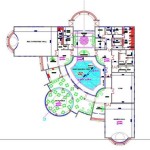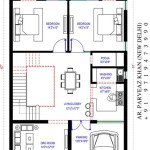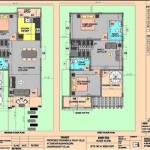Feng Shui Home Plans: Harmonizing Your Living Space
Feng Shui, translated as "wind-water," is an ancient Chinese philosophical system that seeks to harmonize individuals with their surrounding environment. Applied to architecture and interior design, Feng Shui principles aim to optimize the flow of energy, or "Qi," within a space to promote well-being, prosperity, and overall harmony. Incorporating Feng Shui into home plans involves considering various factors, including the placement of rooms, furniture, and even the direction a house faces.
The Bagua map, a fundamental tool in Feng Shui, serves as a guide to understanding the different energy zones within a home. This octagonal grid overlays the floor plan, dividing it into nine sections, each corresponding to a specific life area: career, knowledge, family, wealth, health, helpful people, children/creativity, fame/reputation, and relationships. By analyzing the Bagua map in relation to a home's layout, practitioners can identify potential imbalances and implement adjustments to optimize each life area.
The commanding position is a crucial aspect of Feng Shui home plans. This refers to the location of major furniture pieces, such as beds, desks, and stoves, within a room. Ideally, these items should be positioned diagonally opposite the door, allowing occupants a clear view of the entrance while remaining sheltered from direct drafts. This placement promotes a sense of control and security within the space.
The five elements – wood, fire, earth, metal, and water – play a significant role in Feng Shui. Each element possesses unique characteristics and is associated with specific colors, shapes, and materials. Balancing these elements within a home is essential for creating harmony. For instance, incorporating wood elements, such as plants or wooden furniture, can promote growth and vitality, while metal elements can enhance clarity and focus. Careful consideration of these elements during the planning stage can contribute to a well-balanced and harmonious environment.
Light and air circulation are vital considerations in Feng Shui home plans. Natural light is considered a potent source of positive energy, promoting a sense of well-being and vitality. Maximizing natural light through strategically placed windows and skylights is therefore a key principle. Similarly, proper ventilation is crucial for maintaining a healthy flow of Qi. Open floor plans and strategically positioned windows can facilitate air circulation, removing stagnant energy and promoting a fresh and invigorating atmosphere.
The entryway, or "mouth of Qi," is considered the primary entry point for energy into the home. A clutter-free and welcoming entrance is essential for attracting positive Qi. Avoid obstructing the entryway with large furniture or excessive decorations. Instead, aim for a bright, open, and inviting space that encourages the smooth flow of energy into the home.
The kitchen, representing nourishment and abundance, holds a significant position in Feng Shui. The stove, in particular, is considered a symbol of wealth and prosperity. Positioning the stove so the cook can see the door while cooking is recommended. This placement, similar to the commanding position, promotes a sense of control and security. Additionally, maintaining a clean and organized kitchen is believed to enhance positive energy related to abundance.
The bedroom serves as a sanctuary for rest and rejuvenation. Promoting a calm and peaceful environment is therefore paramount. Positioning the bed in the commanding position, away from direct alignment with the door, is recommended. Avoid placing mirrors directly facing the bed, as this is believed to disrupt sleep. Soft, calming colors and minimal clutter contribute to a restful atmosphere.
The bathroom, representing the flow of water and potentially draining energy, requires careful consideration in Feng Shui. Keeping the bathroom door closed and the toilet lid down is recommended to minimize the potential loss of positive Qi. Adequate ventilation is essential for removing excess moisture and maintaining a healthy flow of energy.
Outdoor spaces also play a significant role in Feng Shui home plans. Gardens, patios, and balconies can be designed to enhance the flow of Qi and create a harmonious connection with nature. Incorporating elements such as water features, strategically placed plants, and comfortable seating areas can create an inviting and revitalizing outdoor environment.
While these principles provide a general overview, it is important to note that Feng Shui is a complex and nuanced practice. Consulting with a qualified Feng Shui consultant is often recommended for a personalized assessment and tailored recommendations based on the specific characteristics of a home and its occupants.

Q A Sunday Feng Shui For New Floor Plan Aie Cho

Simple Balance Feng Shui Home Floor Plan Ysis Nine Steps To Plans Bedroom Tips

Feng Shui For House Layout 17 Tips Good Home Design Plan Living Room

Feng Shui House Layout 50 Architecture And Floor Plan In Cad Dwg Files Cadbull

Good Feng Shui Floor Plans For Your Home Clarendon Homes

Feng Shui Bagua Series 2 Draw Your Floor Plan The Studio

Feng Shui Manor Layout Bedroom Tips Colors

Feng Shui Bagua Map Overlay With An L Shape Floor Plan House Showing Scientific Diagram

Good Feng Shui Floor Plans For Your Home Clarendon Homes

What Is Feng Shui An Interior Decorating Guide Invaluable








